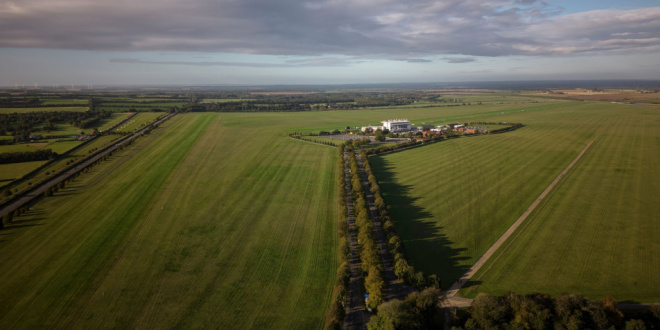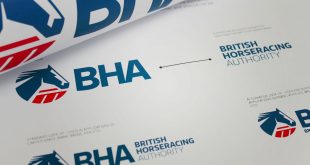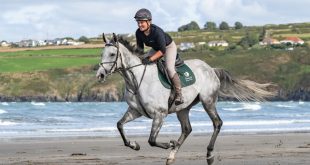The British Horseracing Authority (BHA) has summarised the relationship between racing and betting, and the effect of the Gambling Review so far.
Betting has seen a substantial shift from retail to online and mobile devices in the past 15 years. A betting market boom has also been followed by an ongoing period of regulatory pressure, much of which was amidst global pandemic.
In the BHA’s latest blog, Jack Barton, Policy and Advocacy Manager at the BHA, explored the key issues for racing such as affordability checks, sponsorship and advertising, and how the industry has used its position as a key voice in the gambling debate.
As the Department of Culture, Media and Sport (DCMS) began its review of the Gambling Act in late 2020, a wide-ranging Call for Evidence was released that suggested a major overhaul of Gambling legislation would follow.
Six specific areas of focus included: Online protections – players and products, advertising, sponsorship and branding, the UK Gambling Commission’s (UKGC) powers and resources, consumer redress, age limits and verification, and land based gambling.
Firstly, Barton addressed how racing’s relationship with betting is unique in sport,and explained the changes that have happened since the fixed odds betting terminals (FOBT) reforms.
He said: “The debate around gambling has become polarised between those who believe that the majority of people who bet do not experience harm – as well as the rights of an individual to choose how to spend their disposable income – and those who think gambling needs to be restricted given the harm it can cause to a minority of individuals.”
Barton suggested that the ‘symbiotic’ relationship between the two is such that racing is the only sport to benefit from a statutory Levy, which sees bookmakers pay a proportion of yearly income to support the sector.
He stated that with the government currently reviewing the structure of levy arrangements to ensure racing is not unduly affected by the ongoing Gambling Act Review only ‘underlines the strength of the relationship’s inter-dependency’.
However, the relationship is also responsible for many of racing’s vital income streams including not just the betting levy, but also media rights payments and sponsorship and advertising, all of which makes up an overall contribution of about £350m to the sport’s finances each year.
“The racing industry could not exist in its current size – 59 racecourses, over 500 trainers caring for over 18,000 thoroughbred horses, with 85,000 jobs supported across the rural economy – without this contribution,” Barton emphasised.
“However, such clear interdependencies mean that racing is financially vulnerable to regulatory changes in the betting sector.
“The White Paper is clear that British racing needs an ‘appropriate level of funding’ through the Horserace Betting Levy to mitigate the impacts of new gambling legislation. We hope clarity on future Levy arrangements will be provided soon.”
Moreover, financial risk checks were first proposed by the Commission in 2020 in its ‘Remote Customer Interaction’ consultation at levels as low as £100 per month, with an individual having to provide documentation to an operator such as a payslip or P60 to prove that they could support a higher level of spending.
Barton labels these checks ‘frustrating and limiting’ to the customer experience for racing bettors given the lack of uniformity between operators. He argues further that they have already cost racing significant income, with the 2022-23 GC statistics demonstrating a year-on-year drop of £900m in betting turnover on racing.
“It is timely that, after significant representations from Racing and consumer groups such as the Horseracing Bettors Forum (HBF), Government is now working with the GC and betting operators to deliver a more consistent interim approach for racing bettors,” the Advocacy Manager added.
Furthermore, Barton welcomed the White Paper’s proposals that have ‘largely left the sport untouched’ regarding sponsorship and advertising. These arrangements are one of the key areas in which racing benefits from its relationship with betting, the BHA belives.
“Throughout, we’ve been clear that it is wholly appropriate – provided that responsible gambling messaging is included and that the content and tone of the advert is suitable – for opportunities to bet responsibly on British racing to be advertised during broadcasts of the sport,” he noted.
Finally, looking to the future, the parliamentary debate on affordability checks is set to take place on 26 February, with the BHA and other racing stakeholders working to mobilise MPs to ensure that the views of British racing and those who bet on the sport are ‘properly represented’ within the debate.
“The GC continues to review the submissions to its summer 2023 consultation, which includes proposals on affordability checks, and a response is expected in the first half of this year,” said Barton.
He also explained that a pilot of any announced changes is seemingly now certain to be implemented, while the government’s review of the racing levy is due to be completed by April.
Yet, a looming General Election may impact the progress of parts of the Gambling Review.
Barton concluded: “Whatever happens, the BHA will continue to be at the forefront of highlighting the need for gambling legislation to support rather than hinder the British racing industry, whilst also striking the correct balance between consumer freedom and protection.”









